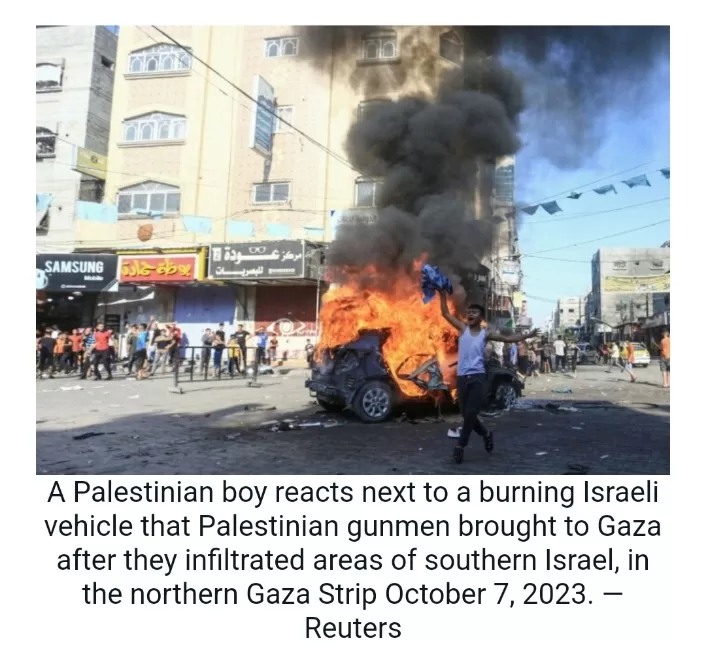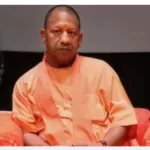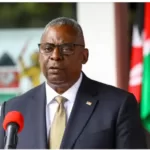In a shocking turn of events, Palestinian militants launched an audacious incursion into southern Israel, leaving international observers and governments in the Middle East grappling with the repercussions. The attack prompted swift and stern condemnation from world leaders, even as it rattled the Israeli security establishment.
UN High Commissioner for Human Rights, Volker Türk, expressed grave concern, emphasizing the dire impact on Israeli civilians. He stressed the utmost importance of avoiding civilian casualties in Israel’s response, declaring unequivocally that civilians must never be the target of attacks.
Israel’s response, characterized by strikes on the Gaza Strip, resulted in a tragic toll, with at least 198 lives lost and nearly 2,000 individuals wounded, according to the health ministry.
The United States, through Defense Secretary Lloyd Austin, pledged support to Israel in its time of crisis. Austin affirmed that the Department of Defense would collaborate to ensure Israel had the resources necessary to defend itself and protect civilians from indiscriminate violence and terrorism.
World leaders echoed their dismay. French President Emmanuel Macron extended condolences to the victims, while German Chancellor Olaf Scholz termed the attack “terrifying news” and condemned Hamas’s actions, affirming solidarity with Israel.
British Foreign Minister James Cleverly stood firmly behind Israel’s right to defend itself, condemning the incursion unequivocally.
Egyptian officials scrambled to contain the diplomatic crisis, engaging in consultations with Jordanian Foreign Minister Ayman Al-Safadi, in a bid to de-escalate the situation. Egypt emphasized the importance of restraint and warned of severe consequences resulting from escalating violence.
The incursion disrupted expectations that Israel could continue its pursuit of peace negotiations with regional nations, despite escalating violence on the ground. Reactions from leaders across the Arab world highlighted the stark contrast between government positions and the views of their citizens regarding relations with Israel.
In Moscow, Russia’s Deputy Foreign Minister, Mikhail Bogdanov, affirmed the need for restraint and confirmed ongoing diplomatic contacts with Israeli and Palestinian officials, as well as regional stakeholders.
Egypt, known for its mediation efforts in ceasefire negotiations between Gaza militants and Israel, intensified talks with allies in the region. However, hopes for a swift resolution remained uncertain.
Lebanese militant faction Hezbollah, while applauding the incursion, refrained from direct involvement in the fighting, despite sporadic rocket fire from Lebanon into northern Israel. The group issued a warning to international actors seeking to normalize relations with Israel, possibly alluding to Saudi Arabia.
Riyadh called for an immediate halt to the escalation, deeming the developments unprecedented. Turkish President Recep Tayyip Erdoğan and Qatar urged restraint from all parties, with the UAE, a recent signatory of normalization with Israel, expressing deep concern and calling for an immediate ceasefire. The UAE also called on international powers to reinvigorate negotiations through the Middle East quartet, comprised of the UN, the EU, the US, and Russia.
In summary, this audacious incursion into southern Israel by Palestinian militants has reverberated across the international stage, prompting widespread condemnation and calls for restraint as diplomatic efforts intensify to defuse the crisis.







